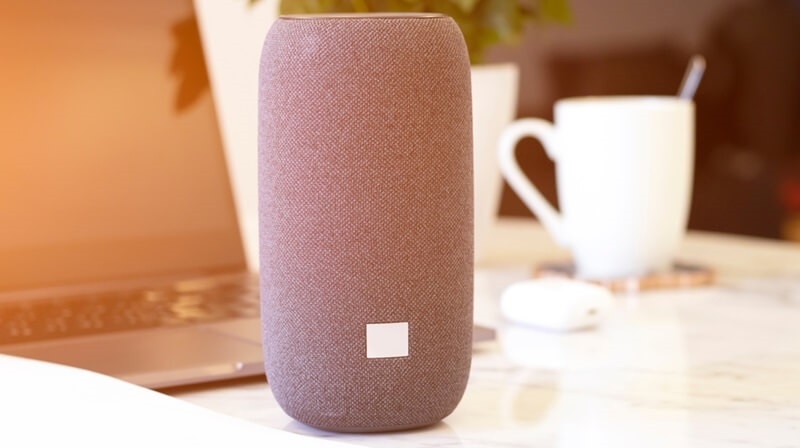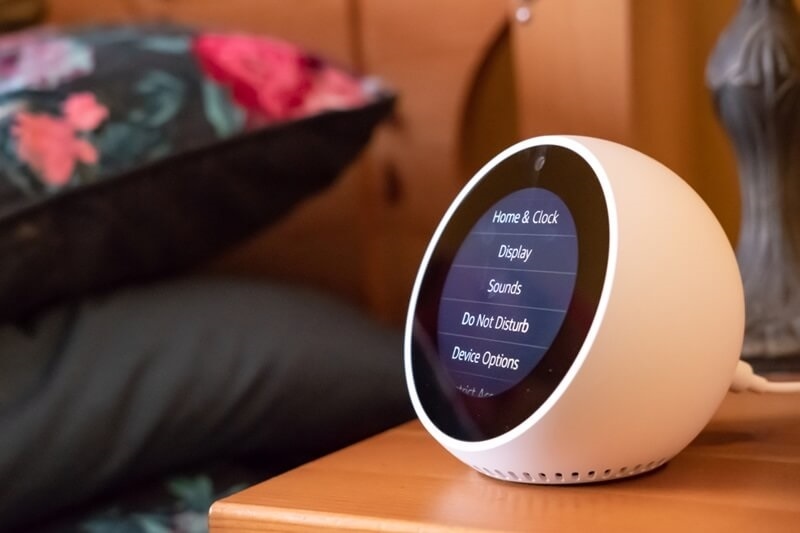
Voice assistant hubs transformed how American households operate, giving voice-control convenience, automation, and one-point access to connected devices. From dimming your lights to setting your thermostat and securing your home, a voice assistant hub does it all. But the increasing prevalence of these hubs presents significant questions regarding data privacy, device compatibility, a privacy focused voice assistant, and local control. This blog compares and contrasts the top voice assistant smart home hubs in the US, with an emphasis on privacy features, the ability to support a variety of protocols like Zigbee / Z Wave smart hub, and options for smart home hub under $100.
A voice assistant hub is an integrated intelligent device that lets a user control different smart home devices using voice commands. Voice assistant hubs are pre-loaded with virtual assistants such as Alexa, Siri, or Google Assistant, enabling the user to command different smart devices from multiple brands and platforms.
More advanced hubs support other communication protocols, such as Zigbee and Z-Wave. These wireless mesh technologies can easily allow devices to talk to each other, causing larger coverage and increased reliability. Moreover, modern hubs are being designed with local processing capabilities. This means they can now execute commands internally rather than relying on heavily clouded servers.

Privacy is the biggest issue in the smart home setting. A voice assistant hub, by its nature, overhears wake words and understands user requests, leaving individuals concerned about what is done with the voice data and whether unapproved people can access it.
This is the reason why the shift towards voice assistant hubs that prioritize privacy is growing at a fast rate. These hubs limit data sharing, allow microphones to be muted, and allow on-device processing. A locally processed hub offers faster performance and less dependency on the internet, thereby lowering cloud-based data breaches.
If privacy is your number one concern, choosing a voice assistant hub with strong privacy features is paramount. Features such as manual mute switches, local voice recognition, encrypted data transfer, and delete voice history options come to mind.
One of the key things to think about when choosing a smart home hub is compatibility with other devices. All hubs are not equal in communication standards. Zigbee and Z-Wave are the most popular low-power protocols that allow smart devices to talk to each other successfully. Matter, a new standard to put an end to fragmentation between brands, is the newest entry.
A good voice assistant hub would, at minimum, support one or more of these protocols to facilitate seamless integration of devices in your smart home. Without it, you could be limited to the kind of products that can be added to your ecosystem.
The Amazon Echo Show 8 is an Amazon Alexa built-in feature-rich voice assistant hub with a colorful screen. The product includes smooth integration with most of the popular smart home products. The product supports Zigbee and Matter, which means it is excellently compatible with brands.
From a privacy perspective, it includes a camera shutter and a mute microphone button. You also have full access to your recordings of your voice, which you can delete at any time using the Alexa app.
While its sticker price is usually more than $100, it often goes on sale and qualifies as a smart home hub under $100 during major shopping periods. This alone makes it one of the most powerful and affordable out there.
Apple's HomePod Mini stands out for its thin form factor, strong privacy features, and deep integration into the Apple ecosystem. It's an excellent embodiment of a privacy-focused voice assistant that prioritizes control by the user and local computation.
Most Siri requests are handled on the device, and when data is sent to Apple servers, it's encrypted and anonymized. Apple also offers users the option to see and delete any voice recordings associated with their account.
It doesn't natively support Zigbee or Z-Wave but thrives with Matter and Thread, making it ideal for Apple consumers seeking a smart home solution that is secure and efficient.
One of the most multi-functional smart home hubs currently on offer in the U.S. is Samsung's SmartThings Station - it has Zigbee and Z-Wave protocol support, bringing the maximum compatibility to a multitude of devices available on the market, and Matter for future interoperability.
The hub is compatible with both Google Assistant and Alexa, so you can choose your preferred voice platform. SmartThings also has local automation features, so your device control and routines will not rely on steady internet connectivity. The hub is priced around $80 and not only works well, but is a fantastic smart home hub for less than $100.
The Google Nest Hub features a smart display with Google Assistant built in. It is a home for all your smart devices, media playback, and routines. It does support Matter and Thread but not native Zigbee or Z-Wave.
In terms of privacy, the device has a microphone mute switch and robust control features in the Google Home app to determine what data is stored and for how long. Google policy also enables one to automatically or optionally delete their voice recordings. Similar to the Echo Show 8, the Google Nest Hub also regularly enters sale mode, offering an affordable voice assistant hub option for homes already integrated into the Google ecosystem.
Home Assistant Yellow is a DIY user's ultimate fantasy. This voice assistant hub is built using open-source software and has more emphasis on local control and privacy than on anything else. It does not require cloud service for its main use and natively supports Zigbee, with Z-Wave and Matter available as options via add-ons.
What sets this hub apart is its complete local processing. Everything from the automations, routines, and controls stays within your home network, so it's one of the most privacy-aware solutions available. While there is some setup and technical acumen required, it's a premium solution for those who want to exert full control over their smart home data and functionality.
This hub can be utilized within the SmartThings system and can manage Zigbee, Z-Wave, and Wi-Fi devices. It is compatible with both Google Assistant and Alexa and is therefore one of the most universally compatible voice assistant hubs available.
It also has support for local processing of smart home automations, reducing the requirement of cloud services. Even though it's generally more expensive than $100, frequent sales bring it to the smart home hub below $100 during sale periods. For those who want strong device compatibility and performance stability, this is an excellent choice.
As homes get smarter, relying on cloud servers to execute all voice commands or automation can lead to lag and potential privacy issues. A local hub processing will bypass these by doing the job directly on the device.
Benefits are:
A hub with local processing keeps your smart home running and secure even when connectivity is poor or non-existent.
The choice of voice assistant hub is more than picking your preferred brand. It requires the consideration of compatibility with Zigbee, Z-Wave, or Matter, having privacy-oriented settings, and whether local processing matters to your requirements.
If your goal is broad compatibility and future-proofing, the Samsung SmartThings Station or the Aeotec Smart Home Hub are excellent choices. For those who prioritize data security and local control, the Apple HomePod Mini and Home Assistant Yellow are standout options.
For budget-conscious consumers, there are quite a few excellent smart home hubs under $100 that balance performance with retaining features. Regardless of whether you're just beginning to build your smart home or require an upgrade with privacy, the right voice assistant hub will make your connected life smarter, safer, and more efficient.
This content was created by AI